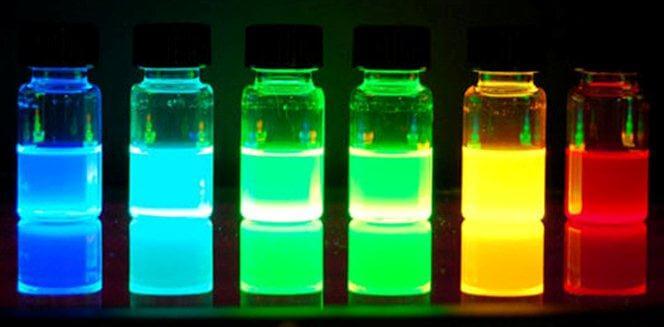Quantum dots lends a lethal blow to antibiotic-resistant superbugs

29 Feb
2016
Quantum dots are crystals of a fluorescent semiconductor material but on a nanoscale measuring about 20,000 times smaller than a human hair, and with a diameter of 2–10 nm. The nanoscale has always been a major challenge as well as intriguing to researchers and industry experts alike, and the recent developments in quantum dots have taken the challenges head-on. Antibiotic-resistant bacteria are becoming a tough challenge for global health providers. As per an estimate, these bacteria are responsible for over 23,000 deaths in the U.S. every year. Antibiotics being the last line of medical defense against some deadly infections, cancer and HIV. As evolution have it, the haphazard administration of antibiotics such as penicillin has resulted in these bacteria such as Salmonella, Staphylococcus and E. coli the ability to evolve and modify their genes so as to become immune to antibiotics. But, new developments point to finding out a solution in sight. A research being conducted at the University of Colorado Boulder by two IIT-Delhi alumni, Prashant Nagpal and Anushree Chatterjee along with some of their colleagues claim to have been winning the war against these superbugs by developing a light-activated superbug-killing nanoparticle–the quantum dot. As a recent paper published this week in the journal Nature Materials, these quantum dots when used in very tiny concentration, have been claimed to eliminate nine of 10 drug-resistant bacterial cells grown in a laboratory culture and highly resistant to any known antibiotic. With further interdisciplinary research cutting across the domain of bio-chemistry and electronics, the quantum dots can be tuned and customized, with the addition or subtraction of an atom to create a material with different property or an advance therapy thus making it more effective in its treatment in diseases.
The study isn't the first of its kind. Earlier few researchers have been done to eliminate these antibiotic resistant bacteria using metals. Previous work has shown that metal nanoparticles made from silver and gold can be used to attack such infections, but with significant side-effects: they effect surrounding human cells also. However, the research regarding quantum dots is different as they're activated by light, they can be made to attack only the desired cells by suitably changing the wavelength of the light.
The team is optimistic that this is a significant step in the development of harmless clinical treatments using nanoparticles technology to combat these superbug.
As one of the researchers in the team puts in enthusiastically, "Antibiotics are not just a baseline treatment for bacterial infections, but HIV and cancer as well…Failure to develop effective treatments for drug-resistant strains is not an option, and that's what this technology moves closer to solving." Researchers across the globe are working intensely working to expand the applications of these quantum dots and the growth prospects are significant for various other areas of biotechnology. As per a report by Allied Market Research titled “World Quantum Dot (QD) Market - Opportunities and Forecasts, 2020” global QD market is expected to grow from $316 million in 2013 to $5,040 million in 2020 at a CAGR of 29.9% for 2013-2020 analysis period.

Akhilesh Prabhugaonkar
Author's Bio- Akhilesh Prabhugaonkar holds a bachelor’s degree in Electronics Engineering from the reputed Vishwakarma Institute of Technology. He has a special interest in the fields of forensics, world history, international relations and foreign policy, sports, agriculture, astronomy, security, and oceanography. An ardent bibliophile and melophile, Akhilesh loves to write on topics of his interest and various other societal issues. This love for writing made him enter the professional world of content writing and pursue his career in this direction.
Avenue: Entire Library membership of Allied Market Research Reports at your disposal
- Avenue is an innovative subscription-based online report database.
- Avail an online access to the entire library of syndicated reports on more than 2,000 niche industries and company profiles on more than 12,000 firms across 11 domains.
- A cost-effective model tailored for entrepreneurs, investors, and students & researchers at universities.
- Request customizations, suggest new reports, and avail analyst support as per your requirements.
- Get an access to the library of reports at any time from any device and anywhere.
Related Post
-
Cash in Transit: How Advanced Telematics Improves the Security of Financial Service Businesses?
-
How Are Space Companies Reacting to the Growing Importance of Space Debris Monitoring and Removal?
-
How Is Integration of Teleradiology in Healthcare Businesses a Profitable Decision?
-
Revolutionary Technologies That Optimize the Potential of Minibus Businesses
-
Why Apparel Businesses Heavily Invest in Online Clothing Rental Services?
-
Herbal Tea: Why Is the Adoption of Sustainable Extraction and Packaging Techniques on the Rise?








